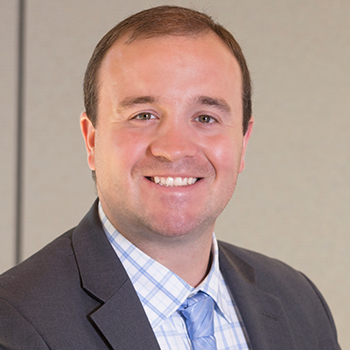How the SECURE Act Could Affect You
1/24/2020 4:09:00 PM

Known as the Setting Every Community Up for Retirement Enhancement act or SECURE Act, the legislation affects anyone who is saving for retirement or will inherit a retirement plan, traditional IRA or Roth IRA from a non-spouse.
Among the changes in the SECURE Act, non-spouse beneficiaries are required to fully distribute inherited dollars within 10 years of the owner’s death. (A spouse who inherits dollars from their partner is able to treat those dollars as their own.) Due to the income taxes realized in the year of distribution, this could have a significant financial impact on the beneficiaries of these accounts.
Effectively, the act causes accelerated distributions, forcing beneficiaries to pay taxes on these dollars in a condensed timeframe. (Previously, beneficiaries were able to stretch required distributions over a much longer timeframe.) Not only will beneficiaries pay taxes on distributions from inherited accounts, they will also pay taxes on any dividends, interest and capital gains attained by reinvesting those dollars in a taxable non-retirement account.
Not all changes are negative. The SECURE Act allows people to make traditional IRA contributions after age 70½ as long as they are working. The Required Minimum Distribution age would also increase from 70½ to 72. Delaying the age you are required to take out a minimum payment means you can delay paying taxes on the money, and your investment could have more time to grow before you need to take it out (subject to market fluctuations).
To prepare for the changes, there are several options you can consider:
- Review your estate planning documents including wills, trusts and beneficiary designations.
- Convert tax-deferred traditional IRA dollars to after-tax Roth IRA dollars, so you’ll pay income taxes now, and the 10 years of distributions will go to your beneficiaries tax-free.
- Consider increasing your gifting to children and grandchildren during your lifetime.
- Designate charities as beneficiaries of your retirement accounts.
- Take distributions from your IRA during your life, and use the proceeds to pay life insurance premiums.
- Spend more money.
Not all suggestions are right for everyone, so before making any decisions, visit with your financial and tax advisors to take a comprehensive look at your financial situation.
Contact our team of financial planning professionals at 701-451-3000 or 800-709-5701 to help determine the best options for you.

Matt Bushard, CFP – VP/Wealth Management Advisor
Main: 701-298-2240
Direct: 701-451-3059
mbushard@bell.bank
Products and services offered through Bell Bank Wealth Management are: Not FDIC Insured | No Bank Guarantee | May Lose Value | Not A Deposit | Not Insured by Any Federal Government Agency
This article has been written for the general information of clients and friends of Bell Bank. It is not intended, nor may it be relied upon, as tax or legal advice with respect to any matter. This article also cannot be used by a taxpayer for the purpose of avoiding penalties that may be imposed by the Internal Revenue Service or other taxing authority.